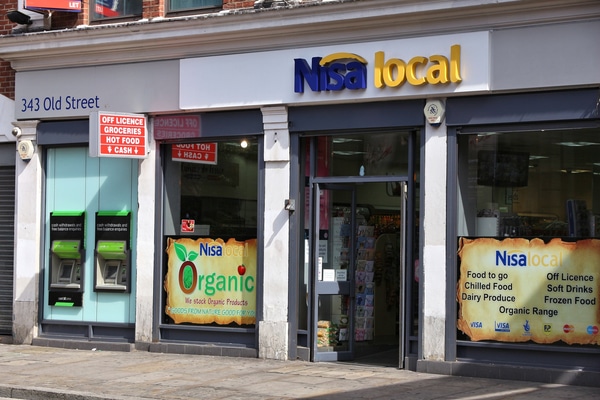Earlier this week Nisa, one of the UK‘s largest convenience store chains, revealed it was exploring a possible sale. As a mutually-owned retailer this could fundamentally change the way the company operates, bringing in outside investment and potentially diminishing the power of its 1400 members.
This model has worked for Nisa since its inception in 1977, growing its estate to over 3500 stores in the UK. Why now, then, would it suddenly want to change things up?
The answer is the looming landmark deal between Tesco and Booker, which Nisa‘s chief executive Nick Read said in April would cause “enormous disruption over the next 18 months”.
“I think there‘s going to be an enormous amount of pain and consequently quite a bit of fallout,” he added.
Although the deal has not yet been confirmed, the prospect of the £3.7 billion merger is already having a big impact on both the grocery and the convenience sector.
It has the potential to change the relationship between suppliers and retailers, and could leave any company unable to make changes fast in the dust.
“many pundits would argue that the company that had put so many of the independents out of business would own their supplier.”
As retail guru Lord Stuart Rose said in January: “This deal says the food sector has to think about the future and we could see consolidation, as what we have at the moment is overcapacity, price pressure, cost pressure and margin pressure.”
This effect has already been seen in the grocery sector, as Sainsbury‘s is reportedly eyeing a potential buyout of Palmer & Harvey, the UK‘s leading tobacco supplier. Despite the move remaining highly speculative, it is viewed as a defensive move against its rival‘s merger.
Professor of retail marketing at Heriot-Watt University, John Fernie, believes the strongest effects will be felt in the convenience sector.
“The Tesco-Booker merger surprised many in the industry and clearly was a shock to independent retailers many whom relied on Booker as a wholesaler,” he told Retail Gazette.
“So many pundits would argue that the company that had put so many of the independents out of business would own their supplier.”
“Much depends on how the competition authority decides on which parts of the empire has to be sold. It seems to me that Tesco is strengthening its convenience store presence and maybe moving into the food service market.
READ MORE: Tesco-Booker merger faces fresh shareholder opposition
“Many regional companies such as CJ Lang in Dundee that supply Spar outlets in Scotland maybe unhappy that a competitor has suddenly got much more powerful. It seems to me that Sainsbury’s has enough on its plate in terms of enhancing its online presence with the takeover of Home Retail Group.”
Despite the recent prominence of discount grocers Aldi and Lidl, the Big 4 have long dominated the grocery market. Meanwhile, the convenience market has remained far more diverse and fragmented in comparison.
Both of these sectors could see a significant change in the coming years, as the giants attempt to consolidate the convenience market.
Fung Global Retail & Technology lead UK analyst John Mercer said the merger could be the starting gun for this process.
“major supermarkets are piling into convenience retailing: they have spotted the opportunity to consolidate and develop the sector.”
“A Tesco-Booker merger would fuel the consolidation of the convenience-store sector, which remains much more fragmented than supermarket sector,” he told Retail Gazette.
“This fragmentation is one reason why major supermarkets are piling into convenience retailing: they have spotted the opportunity to consolidate and develop the sector.
“We expect the process of consolidation to continue over the coming five years, and the planned Tesco-Booker merger should play some role in this.”
Mercer goes on to point out that the deal which stands to disrupt the convenience sector so significantly on balance seems to favour Booker, especially in light of the shareholder revolt Tesco has withstood following the proposal.
Tesco‘s fiscal revenues for 2017 are estimated to be £55 billion, compared to Booker’s £5 billion. Although its rivals may be positioning themselves to deal with the changes it‘s making, Tesco seems to be positioning itself to deal with the changes consumers are bringing to the industry.
Amid the “death of the weekly shop” which has seen consumers shift towards buying less, more often, Tesco has neatly positioned itself to capitalise on this trend.
Click here to sign up to Retail Gazette‘s free daily email newsletter


















